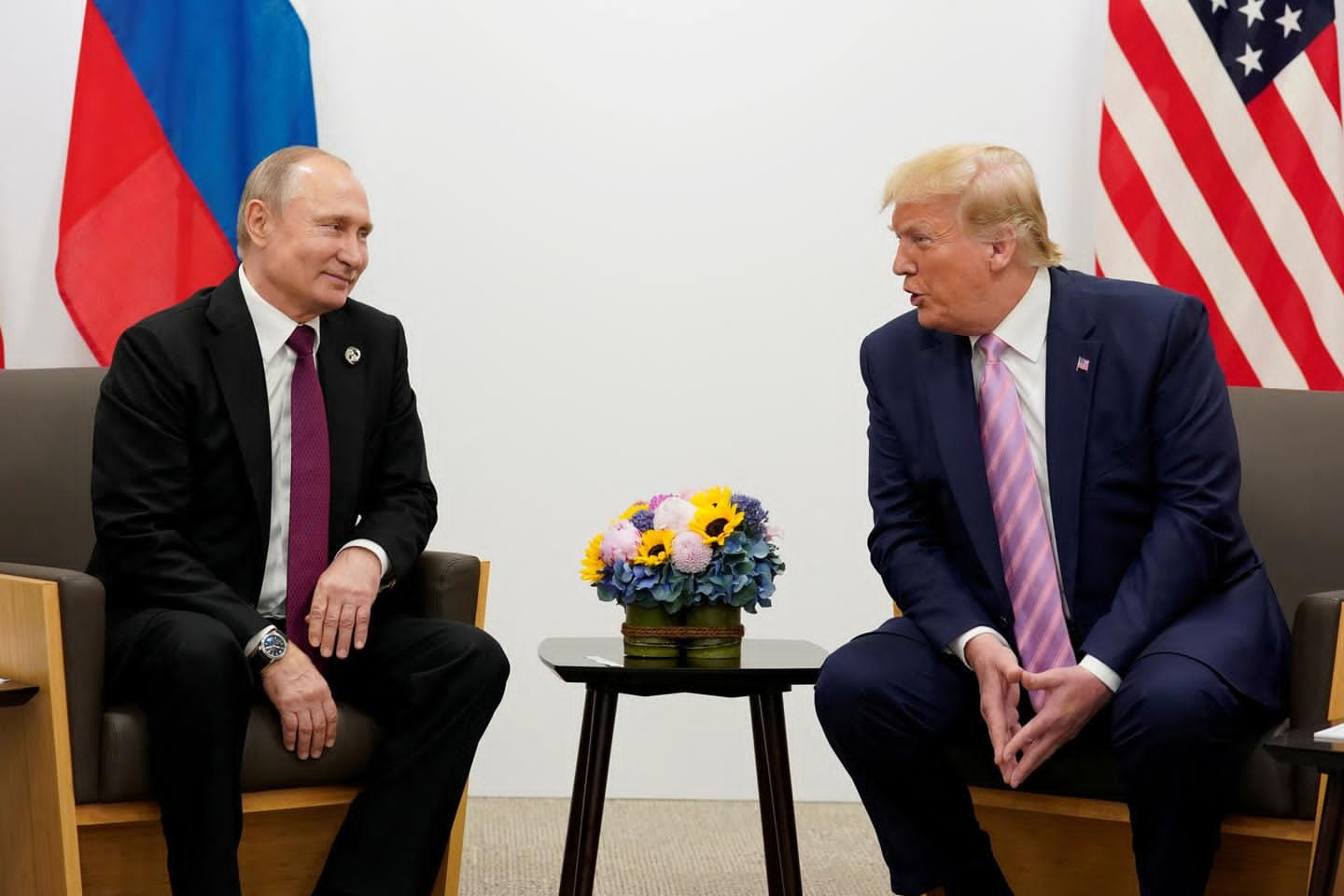
Russian President Vladimir Putin and U.S. President Donald Trump held a rare two-hour phone call amid renewed global pressure for a ceasefire in the war in Ukraine. The call, which Trump described as “excellent,” yielded no breakthrough as the Kremlin rejected U.S.-backed proposals. Source image: Reuters
(The Post News)- Amid a high-stakes diplomatic juncture, Russian President Vladimir Putin and U.S. President Donald Trump had a rare two-hour phone conversation on Monday as the globe once again called for a ceasefire in the war in Ukraine. The “excellent” call, as described by Trump, yielded no breakthrough since the Kremlin rebuffed U.S.-backed proposals for a 30-day ceasefire with no conditions, despite Ukraine’s acceptance of the proposal.
Speaking to reporters in Sochi after the call, Putin characterized the conversation as “very substantive and frank,” and expressed readiness to collaborate with Ukraine on the drafting of a memorandum for potential peace negotiations. But he made clear that Russia’s war goals had not changed, and would not pledge any immediate cessation of hostilities. He reprised instead the Kremlin’s familiar demands, like “denazification,” demilitarization, and Ukrainian withdrawal from territories Russia claims to have annexed — terms that are broadly seen as synonymous with Ukrainian capitulation.
Trump, in contrast, offered a far more upbeat assessment of the conversation. Writing on his Truth Social platform, he said the talks went “very well” and proposed the Vatican as a neutral venue for future negotiations. Trump claimed both sides would “immediately” begin talks, though he acknowledged the U.S. would likely take a backseat role going forward, saying, “If there is no progress, I’m just going to back away.”
Despite Trump’s optimism, there was no immediate movement toward ending the war, now in its third year. His administration, which has previously threatened sanctions if Russia does not seriously engage in peace-making, now appears to be easing pressure. Trump made no mention of new punitive measures and spoke instead of potential U.S.-Russia trade after the war.
Putin, buoyed by recent battlefield gains and a divided European reaction, accepted the call while visiting a music school in Sochi — a symbolic show of casualness. His top aide, Yuri Ushakov, described the tone as friendly and that Trump congratulated Putin on the arrival of his 11th grandson.
Trump vice president J.D. Vance had set up the call by stating the president would see if Putin was “serious” about peace. Vance afterward indicated the U.S. could propose economic inducements to stimulate Russian flexibility but also held out the threat of walking away altogether, saying, “It takes two to tango.”
The call for restraint came only days after the initial face-to-face encounter in over three years between Ukrainian and Russian delegations in Istanbul ended without an agreement. Moscow had called for further territorial concessions in exchange for an end to hostilities, an offer that Ukraine had categorically rejected.
Ukrainian President Volodymyr Zelensky, who talked individually with Trump in two calls following his call with Putin, reaffirmed his country’s commitment to a ceasefire and bilateral talks. But he warned that U.S. withdrawal from the peace process would only embolden Russia.
“If the Russians do not want to stop the killings, there need to be stronger sanctions,” Zelensky stated on Monday. “The only one who can benefit from U.S. moving back is Putin.”
Zelensky also categorically rejected any suggestion of withdrawing Ukrainian troops from the Donetsk, Luhansk, Kherson, and Zaporizhzhia regions — areas Russia claims but does not fully control. “No one will pull our troops from our lands,” he said. “Ukraine does not surrender to ultimatums.”
European leaders followed suit, launching a concerted effort to put pressure on Russia. British Prime Minister Keir Starmer, German Chancellor Friedrich Merz, and other leaders have warned over the weekend that Moscow may be slapped with additional sanctions if it does not agree to an unconditional ceasefire.
However, Trump sounded a drastically different note. In a marked shift from earlier statements in which he promised “maximum pressure” on Putin, the U.S. president now appears to be taking a stance that leaves it to the warring parties. “Russia and Ukraine know the details of a negotiation that nobody else would know,” Trump stated.
Trump also hinted at economic benefits in a post-war period. “There is a tremendous opportunity for Russia to make huge amounts of jobs and wealth,” he said, framing peace more as a business opportunity than a diplomatic imperative.
The Kremlin, for its part, welcomed Trump’s comments. “President Trump spoke quite emotionally about the future of U.S.-Russia trade,” said Ushakov. “This is a new window of opportunity.”
The lack of a solid ceasefire agreement and Trump’s shifting position have raised fears in Kyiv and among European partners that a possible agreement between Washington and Moscow would come at the expense of Ukraine.
“This is a moment of truth,” Zelensky said. “The world can now see if its leaders are really able to stop the ceasefire and achieve real, sustainable peace.”
For now, amidst the diplomatic rush, the war grinds on. Russia’s drone barrage over the weekend — one of the most severe since the war began — killed a woman and injured several others, underlining the deadly stakes and the urgency of talks that, for now, are at a standstill.



